The Team
Our team is currently full but I take applications from undergraduate students for Spring and Summer 2023. Please send an email to skranz@fsu.edu. We currently have no funded graduate or Post-doctoral opportunities available. Try at a later time, please.
Dr. Sven Kranz (Associate Professor)
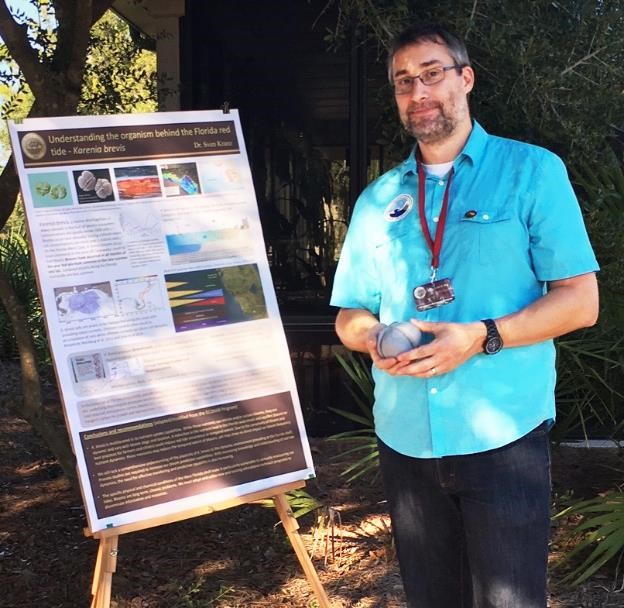
I received my PhD at the Alfred-Wegener-Institute Helmholtz-Center for Polar and Marine Research (AWI) with Dr. Bjoern Rost working of CO2 effects on the N2-fixing cyanobacterium Trichodesmium. After a short Post-Doc position in the same group I had the opportunity to work with Prof. François Morel at Princeton University. In his group I started to work on carbon acquisition of Southern Ocean phytoplankton while continuing my work on CO2 effects on Trichodesmium including CO2 effects under Fe-limitation. In 2014 I started a faculty position in the EOAS department at FSU, receiving tenure in the summer of 2021. MY CV can be found here: Kranz-Bio
In my work at FSU, I am building upon my previous work but continue to increase my portfolio to better understand the regulation of physiological processes of phytoplankton under environmental change. While working mainly in the laboratory, I also conduct fieldwork. I spent 3 months at Palmer Station in Antarctica (2012) to understand seasonal changes in the phytoplankton community productivity and also investigate how the different communities are affected by changes in CO2. In 2017, I participated in the CCE-LTER process cruise during which I measured net community productivity in an upwelling filament using a Membrane Inlet Mass Spectrometry and Fast Repetition Rate fluoremetry. In 2019, I participated in the SCALE'19 Spring cruise to the Southern Ocean to measure how Southern Ocean phytoplankton communities respond to changes in iron and light availability. In Spring 2022, I participated in the BLOOFINZ cruise, which investigated bottom up and top down processes in the Argo Basin (Indian Ocean). I am PI and Co-PI on multiple projects sponsored by NSF and also work with the Florida Fish and Wildlife Research Institute.
NSF award: 1851113 Collaborative Research: Quantifying the effects of variable light and iron on the nitrate assimilation isotope effect of phytoplankton.
NSF award: 1851347 Collaborative Research: Mesoscale variability in nitrogen sources and food-web dynamics supporting larval southern bluefin tuna in the eastern Indian Ocean.
NSF award: 1939994 CoPe EAGER: Multi-Scale Exploration of Nutrient Cycles and its Socio-Economic Impacts in Coastal Areas.
NSF award: 1948758 Excellence in Research: Assessing the Control by Multiple Micropredators on Bacterial Communities in Estuarine Environments and Characterization of Prey Lysis Products Resulting from each Predator.
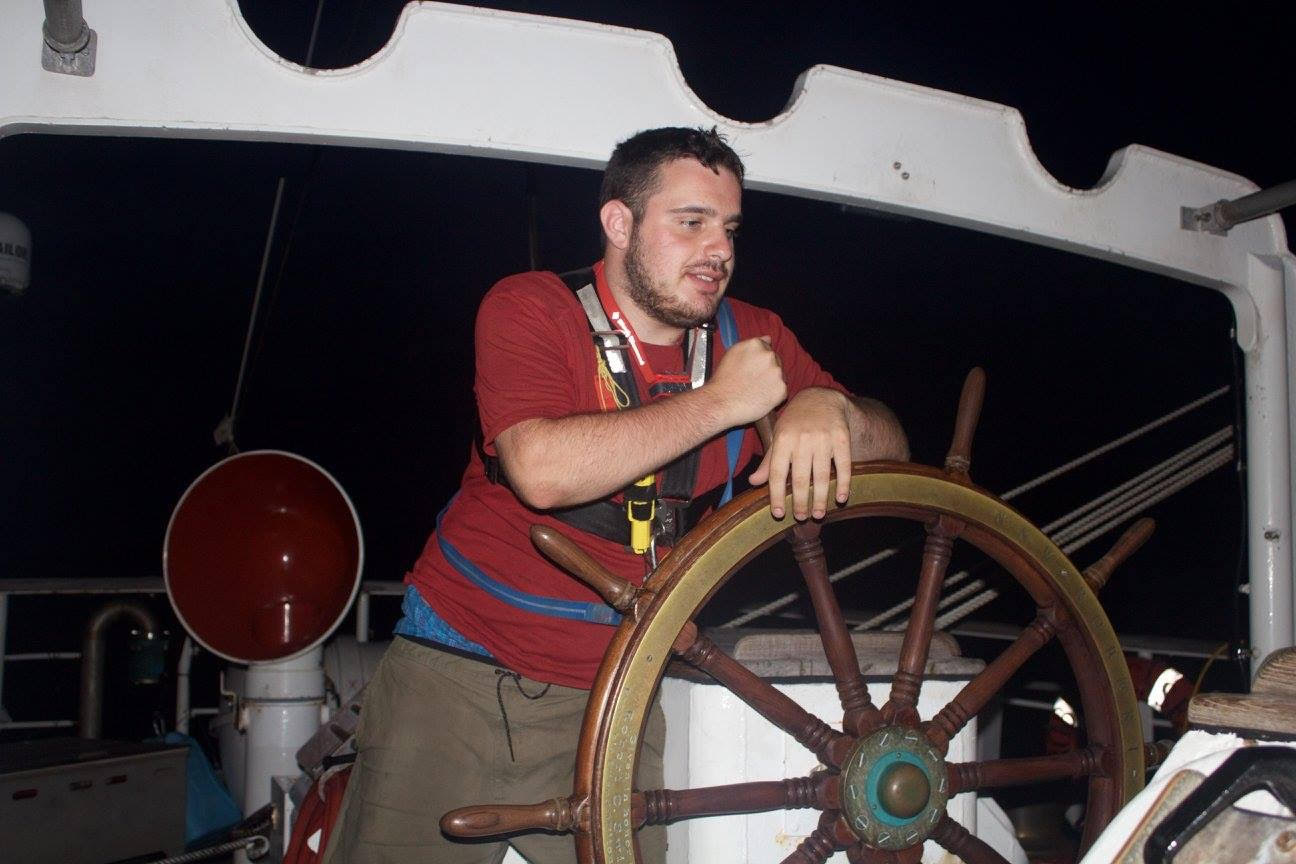
Ph.D student
Jared Rose
I am a PhD student in the Kranz lab. I am originally from Boston, Massachusetts and interested in becoming an oceanographer with focus on chemical and biological oceanography. More specifically, I am interested in exploring how water chemistry affects ocean biology. I hope to soon become well versed in this field of research in order to address the pressing concerns of climate change. I am looking forward to expanding my knowledge and exploring new topics. Some of my biggest passions within science are learning new instrumentation and discussing science with my peers. I am always looking to find ways to make research fun and exciting. My greatest hope is that my research experience provides me the opportunity to become an accomplished, confident, and outgoing scientist. My current thesis work includes research on how environmental conditions (light stress and iron limitation) affect nitrogen isotope fractionation in Antarctic phytoplankton. This is an NSF funded project to my supervisor Sven Kranz. I am also working on developing my own research ideas on multiple stressor effects on phytoplankton in the World's oceans.
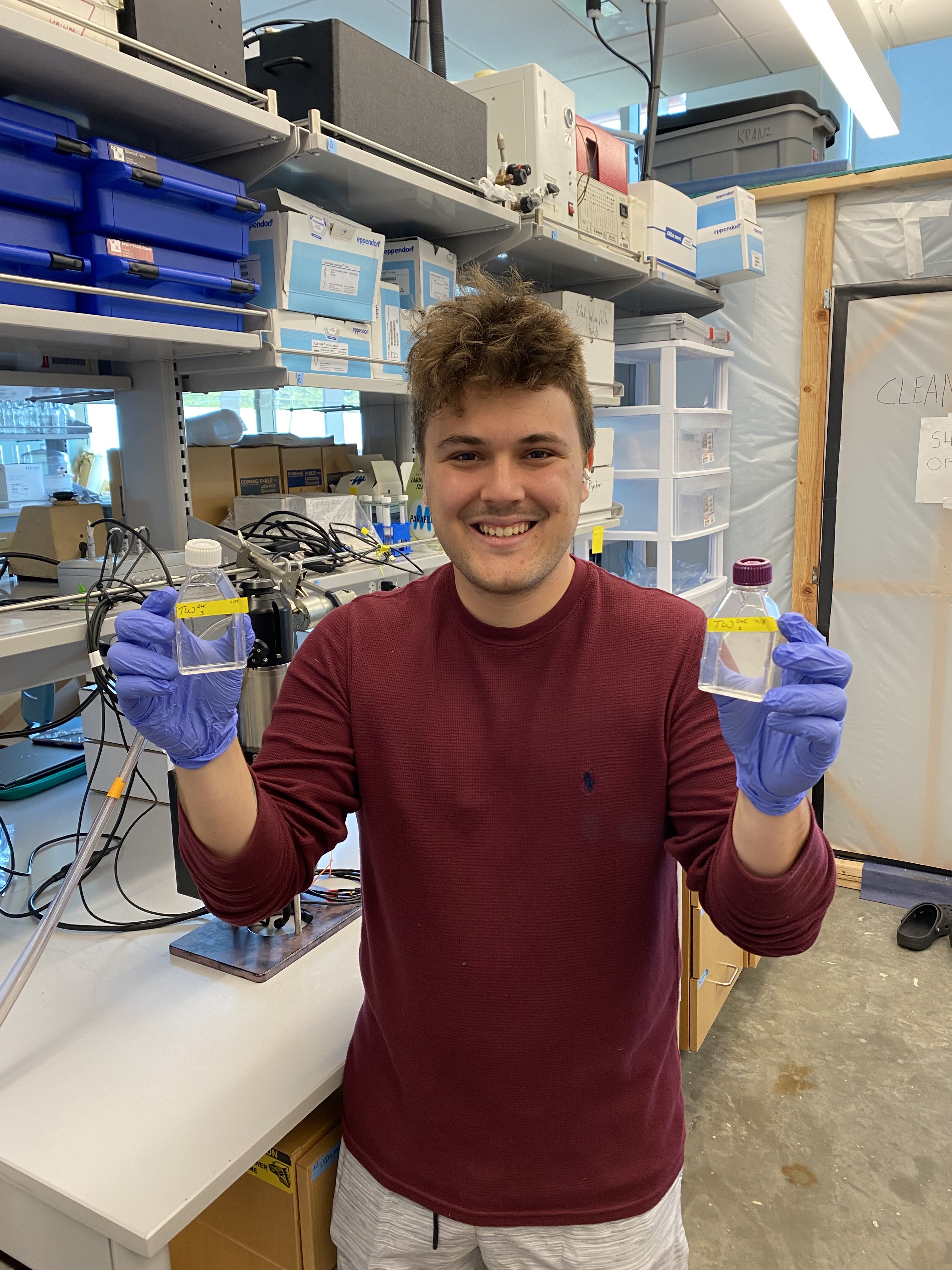
Master's student
Miles Hampton
Miles joined the lab as a Master's student in the Spring of 2022. Miles is working on protein expression of Antarctic phytoplankton under a variety of environmental conditions.

Master's student
Margaret Baker
Margaret (Maggie) joined our lab in fall 2022 after graduating from the University of Tampa. Maggie is working towards a thesis assessing the physiology of Antarctic “sleeping beauties” i.e. a fairytale of Antarctic diatoms trapped within sea ice in the winter, when irradiance drop to below detectable levels for days to months.
Lab-tech
Ana Boesel
Ana is with our lab for 2 years. She graduated from FSU in spring 2022. She is responsible for some of the day-to-day operations, keeping all cultures alive and teaching our new undergraduate students the basics of our lab. Ana is suporting our NSF projects and is also running some of the unfunded and funded Karenia brevis research.
Undergraduate students
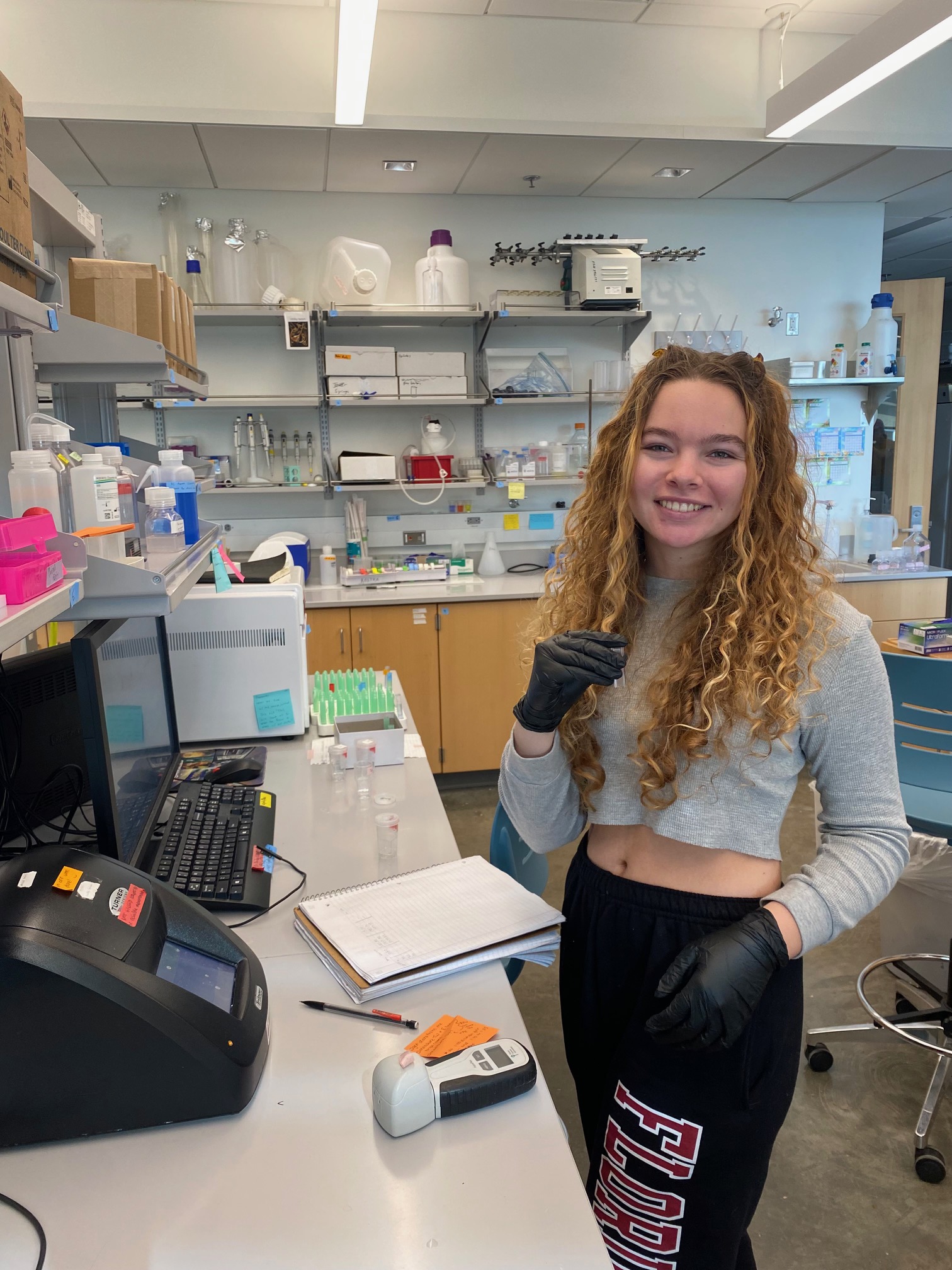
Angelique Kremer (UROP 2022/2023)
Project: Mixotrophy in K. brevis
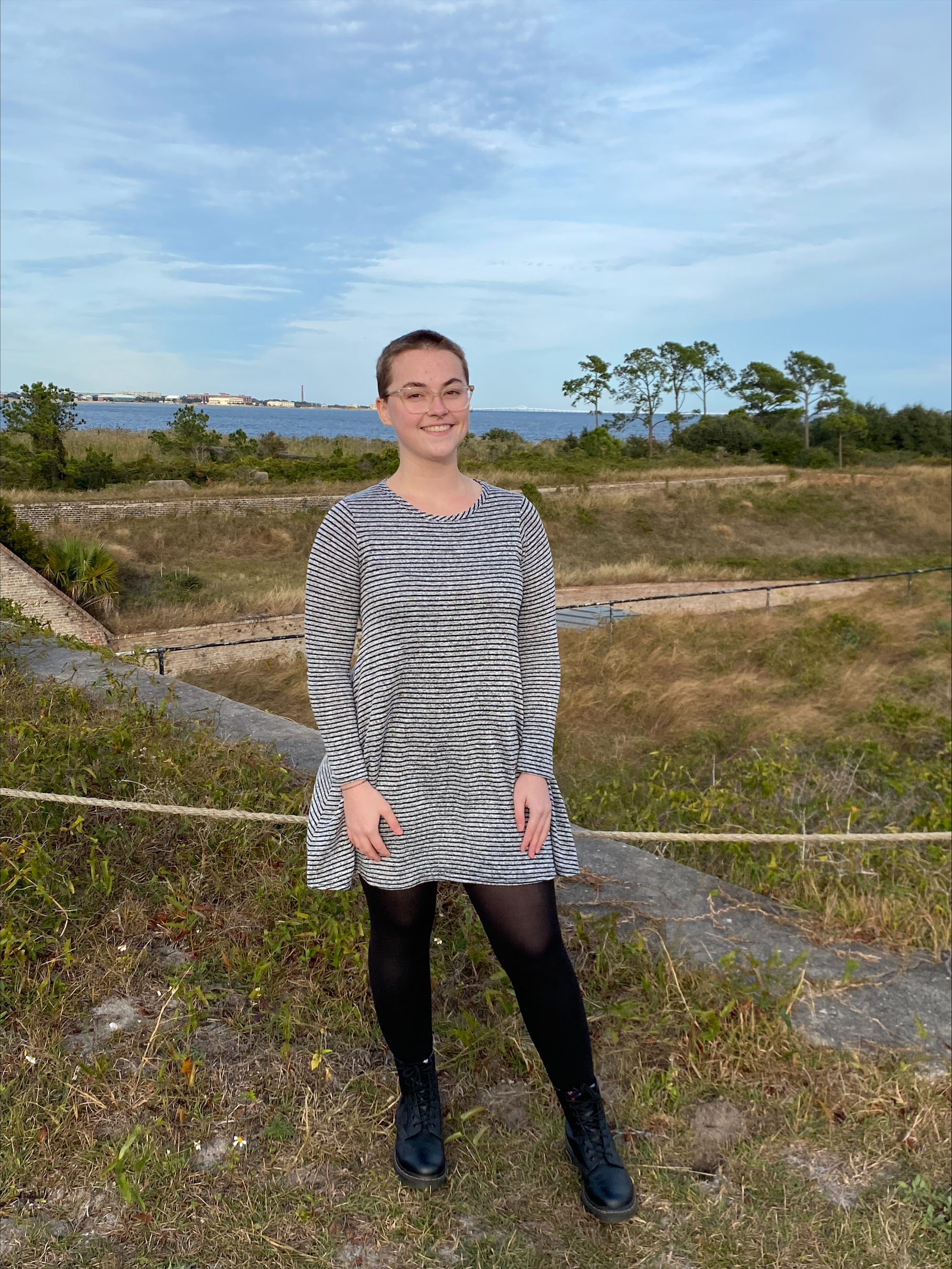
Ava Trail (UROP 2022/2023)
Project: Osmotrophy in K. brevis
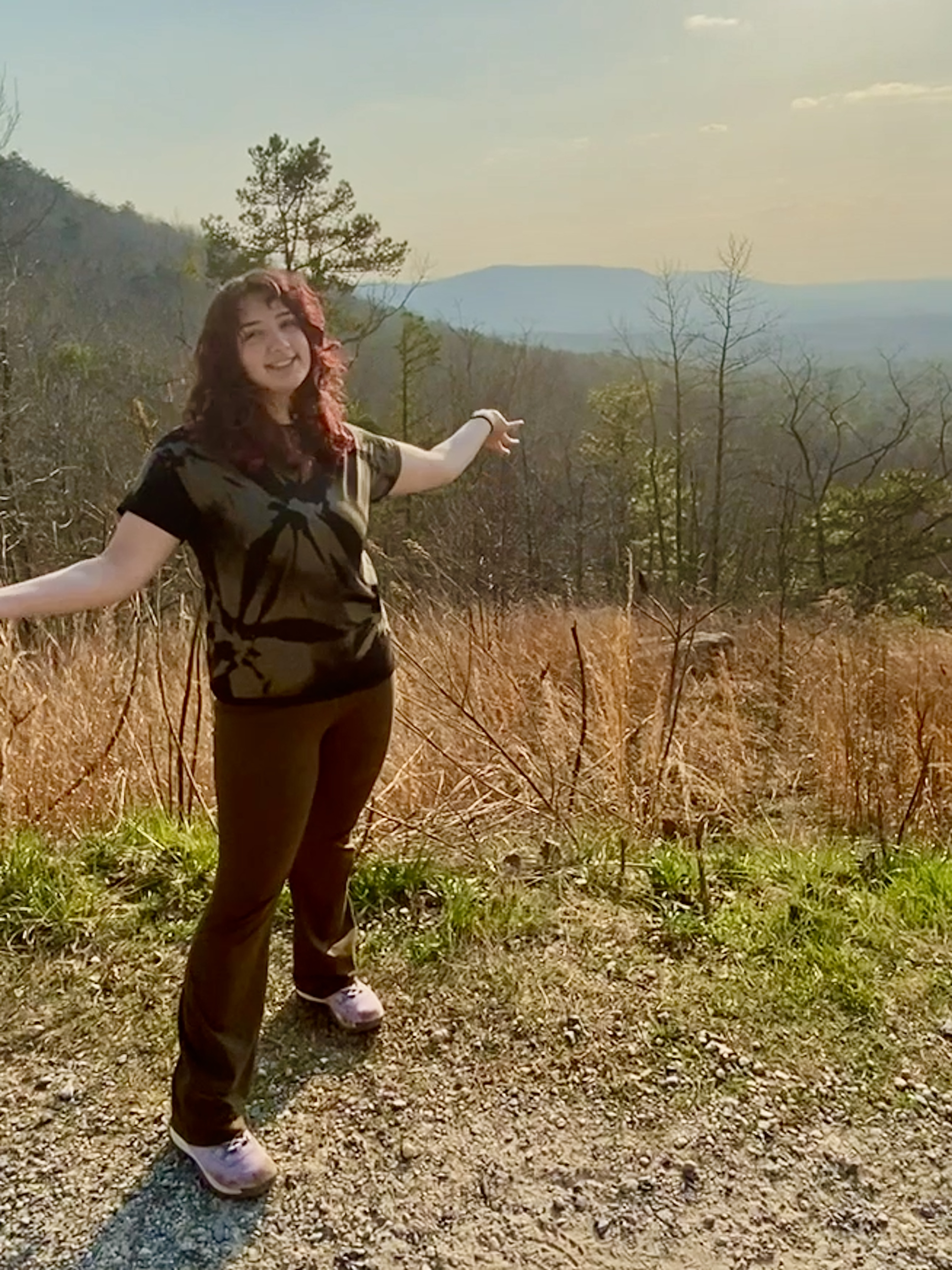
Jacqueline Carr (Penny) (DIS/Intern 2022/2023)
Project: Antarctic Diatoms - light and iron effects
Benjamin Alboucrek (UROP 2022/2023)
Project: Antarctic Diatoms - light and iron effects
We currently have many active undergraduate student working in our lab! AWESOME!!
Alumni -Graduate Students
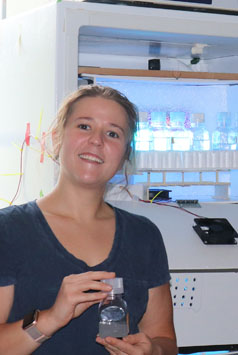
Dr. Tristyn Bercel (2021) now at Mote Lab
Alumni -Undergraduate Students
D. Owen (2015)
K. Ferguson (2015)
P. Knight (2016)
J. Boronek (2016)
Y. Danyuk (2016-2017) Honors thesis
T. Mogavero (2017-2018)
A. Goldstein (UROP - 2017-2018)
A. Hodap (UROP 217-2018; RA 2018-2021)
L. Morales (2018)
T. Fletcher (2018-2019)
A. Silva (2018-2019)
B. Gerad (2018-2019)
N. Hartz (UROP (2019-2020)
A. Boesel (2021-2022)
C. Collier (2022)
Alumni K-12
High school student interns
R. Richardson(2017–2018). Rickards High School
S. Weaver (2017–2018). Leon High School
Middle school student intern:
A. Weaver (2017–2018). Montford Middle School